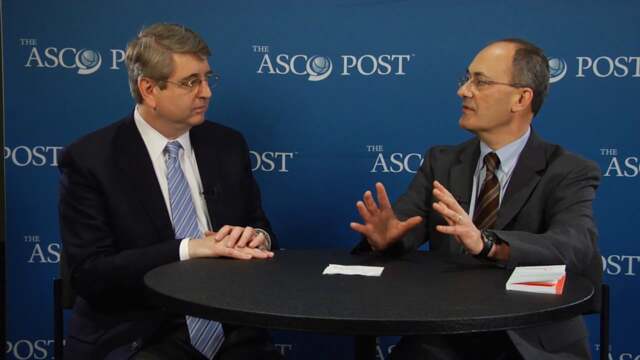Lisa A. Carey, MD
Lisa A. Carey, MD, of UNC Lineberger Comprehensive Cancer Center, offers her thoughts on abstract S1-09, "A phase IB study of pembrolizumab (MK-3475) in patients with advanced triple-negative breast cancer," presented by Rita Nanda, MD.
William J. Gradishar, MD, and Edith A. Perez, MD
William J. Gradishar, MD, of Northwestern University, and Edith A. Perez of the Mayo Clinic Cancer Center, discuss immunotherapy and the highlights of the BOLERO-1 and SOFT trials.
Matthew J. Ellis, MD
Matthew J. Ellis, MD, PhD, of the Baylor College of Medicine, offers a brief synopsis of his plenary lecture, "Genome-Directed Therapeutics for Endocrine Therapy–Resistant Estrogen Receptor–Positive Breast Cancer."
Matthew J. Ellis, MD, PhD, and Harold J. Burstein, MD, PhD
Matthew J. Ellis, MD, PhD, of the Baylor College of Medicine discusses with Harold J. Burstein, MD, PhD, of the Dana-Farber Cancer Institute genome-directed therapeutics for endocrine therapy-resistant estrogen receptor-positive breast cancer.





